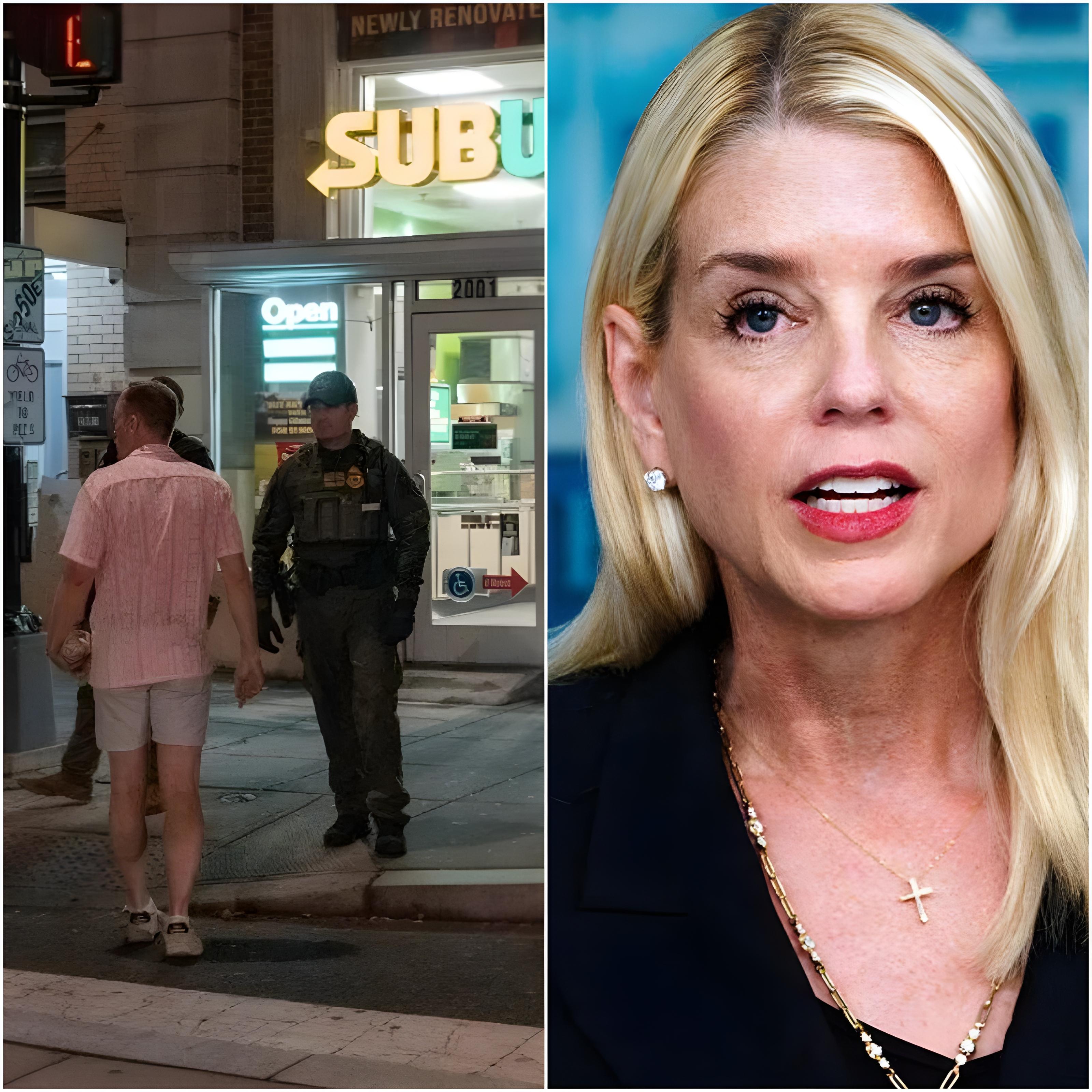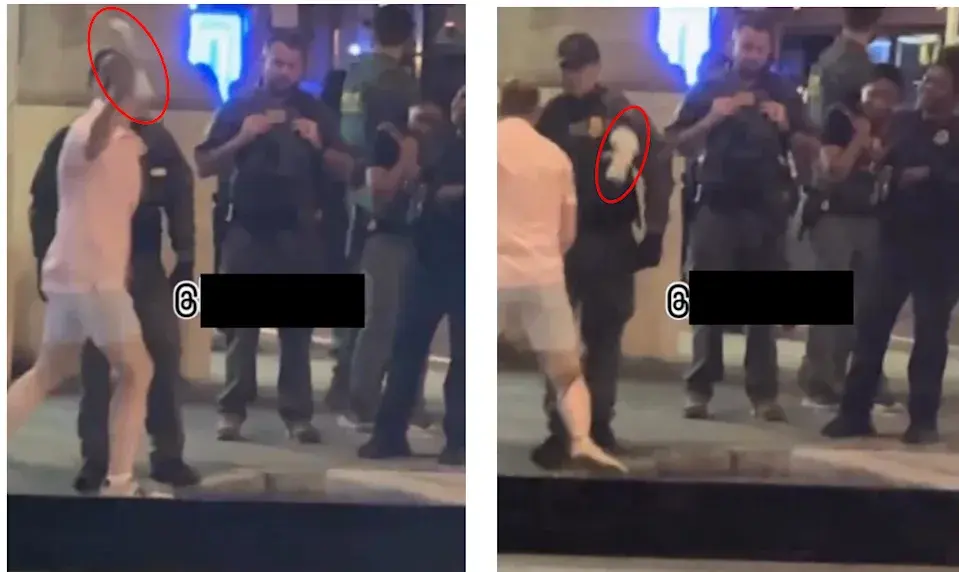On August 14, 2025, a peculiar incident in Washington, D.C., escalated into a national controversy when Attorney General Pam Bondi labeled a fired Justice Department employee a “Deep State” operative after he allegedly threw a Subway sandwich at a U.S. Customs and Border Protection (CBP) agent. The man, identified as Sean Charles Dunn, a 37-year-old paralegal in the DOJ’s Office of International Affairs, was charged with felony assault following the altercation on August 10. Bondi’s inflammatory rhetoric, posted on X, has sparked widespread debate, with critics accusing her of exploiting the incident to advance a political narrative. The episode, captured on video and widely circulated online, has raised questions about the administration’s approach to law enforcement, federal overreach, and the politicization of minor incidents.

The incident occurred late Sunday night on 14th Street NW, amid President Donald Trump’s controversial federalization of D.C.’s police force to combat what he claims is rampant crime. According to court documents, Dunn approached a group of CBP officers, shouting profanities and calling them “fascists” while declaring, “Why are you here? I don’t want you in my city!” He then allegedly threw a “sub-style” sandwich at CBP Agent Gregory Lairmore’s chest before attempting to flee. Officers apprehended Dunn after a brief chase, and he reportedly confessed, stating, “I did it. I threw a sandwich.” The complaint, filed in the U.S. District Court for D.C., charges Dunn with assaulting, resisting, or impeding a federal officer, a felony carrying up to a year in prison and fines.

Bondi’s response was swift and dramatic. In her X post, she announced Dunn’s termination, stating, “I just learned that this defendant worked at the Department of Justice — NO LONGER. Not only is he FIRED, he has been charged with a felony.” She went further, claiming, “This is an example of the Deep State we have been up against for seven months as we work to refocus DOJ.” Her use of “Deep State” — a term often invoked by Trump to describe entrenched bureaucratic resistance — drew sharp criticism. Commentators, including historians and legal analysts, called the label absurd, arguing that a paralegal throwing a sandwich hardly constitutes a conspiracy against the administration. The term’s application to a low-level employee has fueled accusations that Bondi is inflating the incident to align with Trump’s broader narrative of purging disloyal elements from federal agencies.
The incident unfolded against the backdrop of Trump’s deployment of hundreds of federal agents, including CBP, FBI, and National Guard troops, to D.C. under the District of Columbia Home Rule Act. This move, which places the city’s police under federal control, has sparked protests from residents and officials like D.C. Mayor Muriel Bowser, who called it “unsettling.” Despite data showing a decline in crime, the administration insists the crackdown is necessary. U.S. Attorney for D.C. Jeanine Pirro, in a video statement, mocked Dunn’s actions, saying, “He thought it was funny. Well, he doesn’t think it’s funny today because we charged him with a felony: assault on a police officer. So there, stick your Subway sandwich somewhere else.” Her remarks, like Bondi’s, have been criticized for sensationalizing the event.

Critics highlight inconsistencies in the DOJ’s stance. While Bondi condemned Dunn, the department recently defended Jared Wise, a senior adviser hired despite his involvement in the January 6 Capitol riot, where he shouted “kill ’em” at police. Wise, pardoned by Trump, faced no repercussions, prompting accusations of selective outrage. Dunn’s attorney, Sabrina Shroff, noted that 20 officers were sent to arrest him, raising concerns about disproportionate response. Shroff declined to comment further, but the case has drawn attention to broader tensions, including public resentment over federal agents patrolling D.C. streets.
The viral video, posted on platforms like Instagram, shows Dunn berating officers before throwing the sandwich, an act some view as a protest against Trump’s policies. Supporters of Dunn argue the felony charge is excessive, given the minor nature of the assault, while others see it as a justified response to disrespecting law enforcement. The incident has become a flashpoint in the debate over federal authority, with Bondi’s “Deep State” claim amplifying divisions. As Dunn awaits his court appearance, the controversy underscores the fraught intersection of politics, law enforcement, and public perception in a polarized America. The Smithsonian audit, another recent point of contention, further illustrates the administration’s push to control cultural and historical narratives, leaving many to question the implications for civil liberties and institutional independence.






